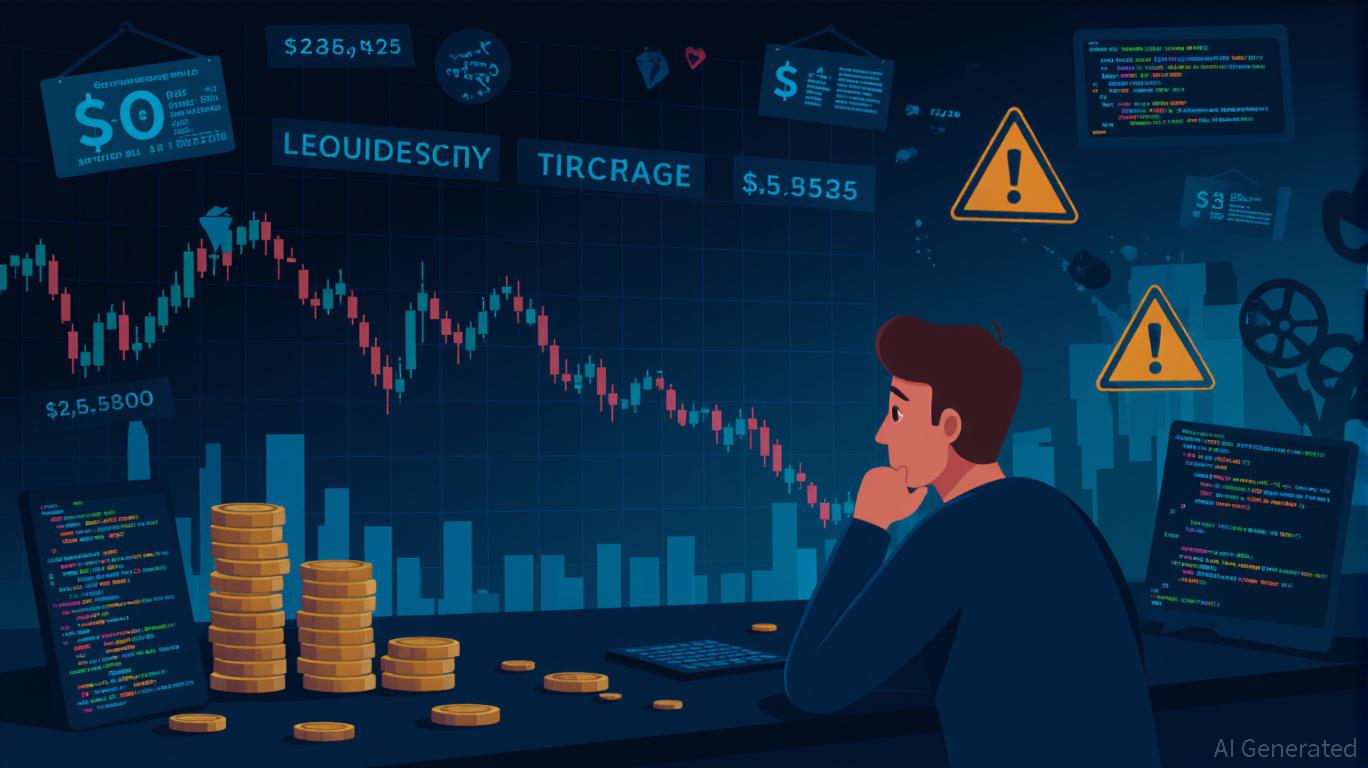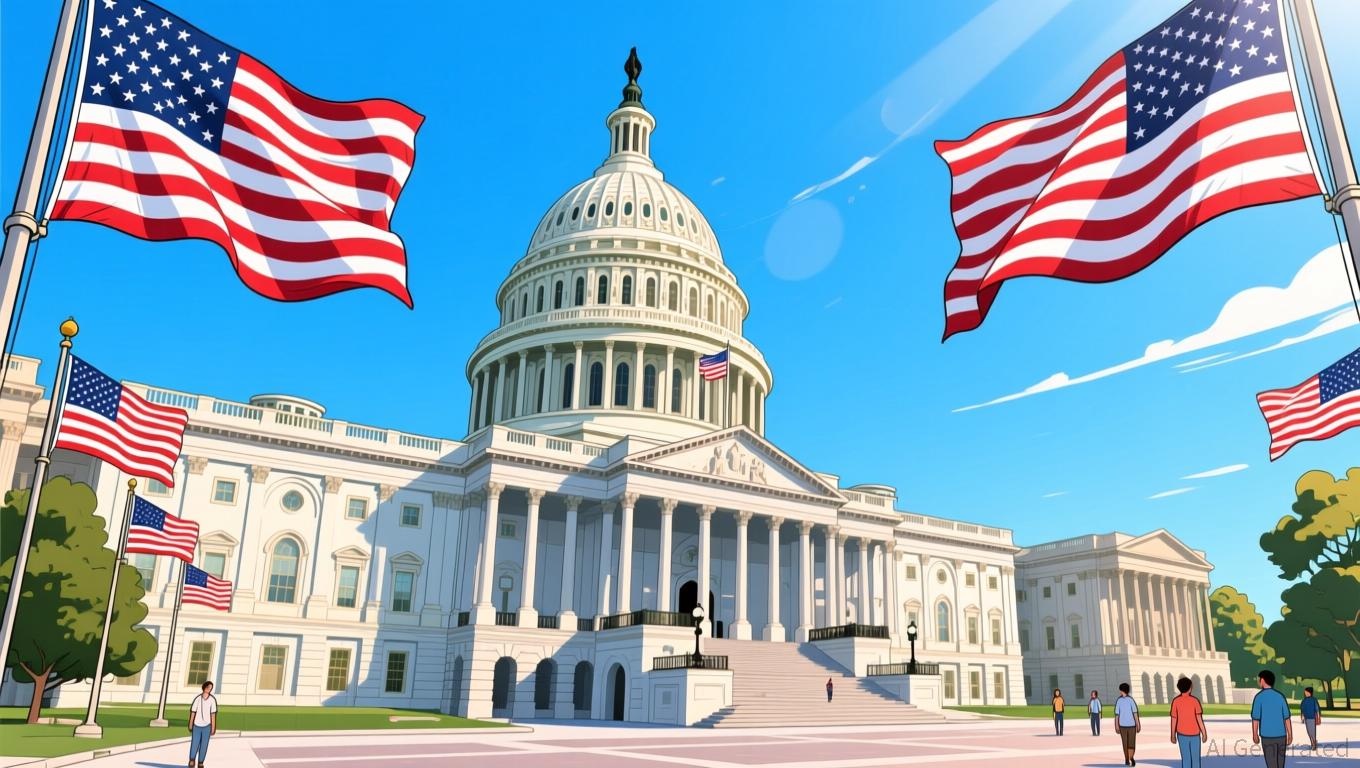Navigating the Dangers of New Cryptocurrency Tokens: Insights Gained from the COAI Token Fraud
- COAI token's 2025 collapse exposed systemic risks in algorithmic stablecoins, centralized governance, and fragmented regulatory frameworks. - xUSD/deUSD stablecoins lost dollar peg during liquidity crisis, while 87.9% token concentration enabled panic selling and manipulation. - Regulatory gaps pre-collapse allowed COAI to exploit loosely regulated markets, but post-crisis reforms like MiCA and GENIUS Act now demand stricter compliance. - Investor sentiment shifted toward transparency, with demand for re
The COAI Collapse: How It Happened and Systemic Weaknesses
The downfall of COAI stemmed from the volatility of its algorithmic stablecoins,
Regulatory challenges added to the strain.

Regulatory Blind Spots and the Road to Harmonization
Prior to the COAI crisis, algorithmic stablecoins operated in a largely unregulated space.
Following the collapse, efforts such as the EU’s MiCA and the U.S. GENIUS Act are driving stricter requirements for capital reserves, independent audits, and consumer safeguards.
Investor Attitudes and Market Response
The COAI incident led to a significant drop in trust toward algorithmic stablecoins and AI-powered DeFi platforms.
This change has also influenced the broader DeFi landscape. Projects lacking transparency or with centralized authority now face increased skepticism, while those adopting open governance and clear reserve disclosures are regaining favor. For investors, sentiment has evolved from a mere market signal to a measure of trust in a project’s core principles.
Best Practices for Vetting New Tokens
After COAI, due diligence now goes far beyond simple KYC procedures. Both founders and investors are encouraged to use Know Your Wallet (KYW) methods,
Operational due diligence (ODD) is just as important. Investors should confirm that funds are properly segregated, verify the legitimacy of funding sources, and ensure governance is robust—for example, by checking for
Conclusion: Creating a Risk-Conscious Crypto Portfolio
The COAI event stands as a warning for those navigating the crypto world. While advancements in AI and DeFi offer great potential, they also require careful examination of technical systems, governance, and regulatory fit. By emphasizing transparency, leveraging AI-powered audits, and keeping pace with regulatory changes, investors can better manage risks and spot projects with lasting strength.
As the sector evolves, the core principle for prudent investing remains: don’t just trust—verify.
Disclaimer: The content of this article solely reflects the author's opinion and does not represent the platform in any capacity. This article is not intended to serve as a reference for making investment decisions.
You may also like
YFI Declines 49.94% Over the Past Year as Overall Market Faces Downturn
- YFI fell 0.15% in 24 hours to $4006, with 49.94% annual decline amid broader crypto market downturn. - Yearn.finance lacks project updates or governance changes to drive price recovery since November 2025. - Token remains vulnerable to macroeconomic shifts and geopolitical risks affecting risk-on/risk-off investor behavior. - Analysts expect continued consolidation until on-chain metrics show ecosystem improvements or external market confidence rebounds.

Bessent: Raising the Debt Ceiling by July Is Essential to Prevent Market Turmoil
- US Treasury Secretary Bessent reiterated the economy is not at recession risk despite fiscal debates and market volatility. - He warned the debt ceiling must rise by July 2025 to avoid default, stressing "full faith and credit" is non-negotiable. - Corporate resilience (e.g., Ross Stores' strong earnings) contrasts with Fed policymakers' split on rate cuts amid inflation concerns. - Trump's $2,000 "tariff dividend" proposal faces congressional hurdles, with Bessent acknowledging it requires legislative a

Trump’s Andrews Golf Renovation: Who Pays the Taxpayer Tab?
- President Trump enlisted Jack Nicklaus to renovate aging golf courses at Joint Base Andrews, part of his White House-related construction projects. - The $300M+ portfolio raises questions about funding sources, mirroring controversies over unclarified costs for other projects like the Paris-style arch. - Nicklaus Design, with 425 global courses, will lead the overhaul despite Trump's claim of "very little money" needed, while critics scrutinize public-private spending blending. - The 15-mile White House-

Crypto Casinos Strive for Security, Fast Transactions, and Regulatory Reliability
- Crypto casinos face heightened scrutiny as demand grows for secure, efficient platforms prioritizing fund transparency and rapid withdrawals. - Coinbase's wallet migration highlights proactive security measures, aligning with crypto casinos' need for robust cybersecurity to protect user assets. - UK's NCA dismantled a $1B crypto laundering network, demonstrating blockchain traceability's role in combating crime and bolstering trust in compliant platforms. - BitForex's KYC enforcement and withdrawal updat
